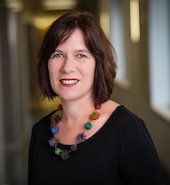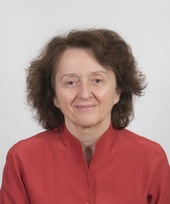
|
|
|
Plenary speakers
Keynote Lectures:
Jennifer Case
Her research on student learning in engineering education, curriculum reform, and comparative higher education has been widely published and well cited, with over 60 peer-reviewed journal publications and two monographs. She was a founding member of the Centre for Engineering Education (CREE) and served twice as its Director, as well as being the founding president of the South African Society for Engineering Education (SASEE).
|
Urgent questions for engineering education in the age of genAI: The rapid developments in generative AI have brought with them a sense of urgency for rethinking education. Part of this breathlessness is likely associated with the business imperative – pursuit of revenue potential not yet realized for these new tools. But it’s undeniable that this freely available technology, now on everyone’s laptop and phone, raises significant questions we cannot ignore. Current responses range from the latest utopian visions of teacher-free education, to cautious engagement focused on ethical dilemmas, through to resistant perspectives envisioning a dystopic future if we don’t batten down the hatches. In this talk, Jenni Case argues that these questions should prompt a renewed and urgent engagement with the core issues at the heart of engineering education: What do students need to know, as well as what do they need to do, and who do they need to become? How do we create educational environments in which such learning can occur? What is the role of the teacher? And how can we be sure that learning has happened? These questions require us to re-engage firstly with what the curriculum should look like. While the engineering curriculum is oriented toward what engineers need to be able to do in the workplace, there is no simple reverse engineering from practice to curriculum. Formal education has its own internal logic and outcomes are emergent and not fully determined from inputs - in this way differing fundamentally from on-the-job training. Using a tripartite model of knowing, acting, and being, this talk shows that the neglect of knowledge renders the other two elements unstable. There is no content-free critical thinking or lifelong learning. Crucially, a professional will always be defined by the knowledge they are able to recruit to address complex real world problems. Engineering education research has a crucial role to play in addressing these questions. Importantly, we must move beyond research focused solely on “what works”. The questions we now face require a deep engagement with the purposes of engineering education and the core values that underpin it. A focus on knowledge requires that we identify the core concepts needed for each engineering discipline and to formulate the pedagogical content knowledge that teachers will need to deploy to enable students to master difficult concepts. Much of the current discussion around generative AI has of course been focussed on the validity of assessment given the ubiquity of new tools that can allow for the bypassing of actual learning and mastery. It also seems unavoidable that we must seriously rethink our methods of assessment in order to be able to be confident that we are producing engineering graduates equal to the challenges that they will face in their future careers.
|
Jorge G. Zornberg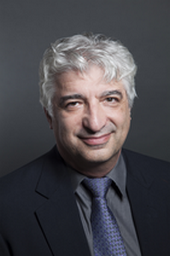
has over 35 years of experience in practice and research in geotechnical and geosynthetics engineering. His research focuses on transportation geotechnics, environmental geotechnics, geosynthetics, unsaturated soils, and expansive clays. As an engineering consultant, he has been an expert witness in litigation and forensic geotechnical cases. From 2010 to 2014, Prof. Zornberg served as president of the International Geosynthetics Society (IGS). He has authored over 500 technical publications, written several book chapters, and been awarded three patents. Prof. Zornberg received numerous prestigious awards, including the 2024 Peck Lecture Award. He was also recognized with the Mercer Lecture, ASCE’s Croes Medal, the IGS Award, ASCE’s Collingwood Prize, as well as the Presidential Early Career Award for Scientists and Engineers (PECASE) awarded by the President of the United States. In 2019, the IGS established the “Zornberg Lecture,” an honorary lecture recognizing his contributions to the discipline of geosynthetics.
|
Geosynthetics in the classroom: Educating future engineers and their instructors Geosynthetics are geomaterials now widely used across nearly all areas of geotechnical engineering. Despite their growing importance in practice, instruction on geosynthetics remains limited in undergraduate civil engineering programs. While their teaching is becoming more established at the graduate level and in continuing education for professionals, undergraduate curricula have yet to reflect this shift. One reason for this gap is that many current geotechnical faculty were not exposed to geosynthetics during their own education, given the relatively recent emergence of these materials. Although professional training may eventually address practical applications, exposure to the fundamental behavior of geosynthetics arguably belongs alongside that of traditional geomaterials, early in the educational process. Embedding this content at the undergraduate level helps ensure that students develop a comprehensive understanding of geomaterials from the outset. This presentation introduces core concepts that align the teaching of synthetic geomaterials (geosynthetics) with that of earthen geomaterials such as soils and rocks. It begins by presenting educational modules that draw parallels between geosynthetics behavior and basic principles of soil mechanics. To support university professors in bringing this content into undergraduate civil engineering classrooms, the International Geosynthetics Society (IGS) launched an educational initiative. This program facilitated in-depth discussions around technical content, instructional delivery, and the challenges of introducing new material into already crowded undergraduate curricula. It also offered a valuable opportunity to assess how seasoned educators engage with emerging teaching content. The presentation concludes with the results of a survey conducted among civil engineering faculty at universities in several countries. The goal was to assess how geosynthetics are currently taught at the undergraduate level and to identify gaps and opportunities. More broadly, it provides insights into the structure of civil engineering curricula by examining the number and nature of required versus elective courses in geotechnical engineering across representative national contexts. Together, these insights highlight the importance and feasibility of integrating geosynthetics meaningfully into core civil engineering education, ensuring students are better prepared for modern geotechnical practice. |
John Burland Lecture:
Marina Pantazidou is an associate professor at the Civil Engineering School of the National Technical University of Athens, Greece. Apart from university appointments in the US and Greece, her professional experience also includes work in hazardous waste consulting. Her research topics are drawn from environmental geotechnics and engineering education. She is author of 100 publications, 25 of which on geotechnical engineering education topics. She has been a guest editor for two special issues on geotechnical engineering education, one on case studies developed for geotechnical engineering instruction. She has been actively involved with the Hellenic Society for Soil Mechanics and Geotechnical Engineering (secretary general 2012-2015 and board member 2015 - ) and the ISSMGE Technical Committee TC306 on Geo-engineering Education (core member 2010-2013, vice chair 2013-2017, chair 2017 - ). She chaired the ISSMGE Int. Conf. on Geotechnical Engineering Education GEE2020, (streamed from) Athens, Greece, June 23-25.
|
Proposed and implemented changes in attitude, organization and scale for geotechnical engineering education: The teacher as a go-between and TC306 as a knowledge broker This lecture campaigns for solutions that overcome obstacles to the production of quality teaching materials for engineering education, proposes a framework for their production, and describes example applications in geotechnical engineering. The perspective of the lecture is content-based, i.e. not method-based. This perspective calls for two fundamental changes in attitude. First, shedding the assumption that geotechnical engineering instructors have more than enough suitable teaching materials to choose from. Second, adopting in education the practice of peer review, i.e. doing education as we do research. For organizing the production of teaching materials, the literature of education offers the concept of pedagogical content knowledge, which first requires acknowledgement that indeed there exists a distinct body of knowledge, part of which resides unrecorded in the minds of the teachers. Pedagogical knowledge of content focuses on how content is perceived by both instructors and students and on how to guide understanding of content towards generative perceptions and away from misinterpretations. The lecture describes small-scale teaching materials developed within this framework for the topic of soil compaction. Developing teaching materials and peer review take significant time; without the incentives of research (funding and prestige), it can be done by reducing the scale of the undertaking and of personal involvement. Some progress has already been made by TC306, the technical committee on geo-engineering education, with contributions provided by its members and obtained through reaching out. Collectively, the advocated changes transform the teacher into a go-between who bridges experience levels, connects ideas, and links education with both research and professional practice. By fostering collaboration and serving as a conduit for sharing and feedback, TC306 acts as a knowledge broker. |
Invited Lectures:
Francesca Ceccato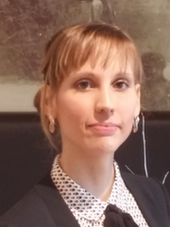
is a researcher at the University of Padua (Italy), where she currently teaches “Geological and Geotechnical Engineering” and “Numerical Modelling in Geomechanics” in the master programs of Water and Geological Risk Engineering and Civil Engineering. She has also been involved in the international teaching program Engineering for Africa within the cooperation between the University of Padua (Italy) and the Ecole National the Traveaux Publiqe (Camerun). She is the secretary of TC103-Numerical methods of ISSMGE, a member of the Italian Geotechnical Association (AGI) and a member of the editorial board of Soils and Foundations. Her main research topics include numerical modelling in geomechancis, with particular interest in the Material Point Method (MPM), assessment of river embankment vulnerability, soil characterization and the preservation of historical heritage, in particular the study of ancient foundations of the city of Venice. She is member of the core developer team of the open-source code Anura3D, based on MPM, and participate intensively in the activities of the Anura3D MPM research community.
|
Teaching numerical methods or teaching with numerical methods? This lecture presents some of the results of a collaboration between TC103 (numerical methods) and TC306 (geoengineering education) of ISSMGE with the objective of producing high quality educational material to be shared with educators in form of figures or videos. The project stems from the idea that figures, charts and videos obtained with the use of numerical tools can enrich teaching of key concepts of geomechanics in introductory courses. Examples are visual resources obtained using DEM to illustrate micro-phenomena and the particulate nature of soils and its consequences, or using FEM/FDM to illustrate macro-phenomena such as stresses under loaded areas or bearing capacity of foundation. Figures are submitted with metadata useful to guide the use of the material even by educators that are not expert in numerical methods. However, this raises a fundamental question: how detailed should be student’s (and educator’s) knowledge on numerical methods to fully understand (and use) the material? This paper discusses this issue showing how the same material, if correctly prepared, can be used with different purposes both in basic and advanced courses. Pilot examples are illustrated with specific emphasis on stress under loaded areas. |
Jean Sulem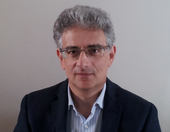
Jean Sulem is Professor at Ecole Nationale des Ponts et Chaussées, and Research Director. He has been the Director of CERMES (2010-2020) and then the Director of Laboratoire Navier (2020-2024). Jean Sulem is Past-President of the French Society of Rock Mechanics. Since 2020, he is Editor-in-chief of Rock Mechanics and Rock Engineering (Springer). His research interests are related to Bifurcation theory applied to stability and strain localisation analyses, Constitutive Modelling of geomaterials, Experimental Rock Mechanics, Thermo-hydro-mechanical behavior of geomaterials with applications to tunnelling, Energy-related rock engineering, Deep geological storage, Fault mechanics. Jean Sulem has published more than 130 papers in peer-reviewed journals and several books among them: Vardoulakis, I. and Sulem, J. , 1995, Bifurcation Analysis in Geomechanics, Taylor & Francis, M. Panet & J. Sulem, 2022, Convergence-confinement method for tunnel design, Springer). In 2018, Jean Sulem received the Vardoulakis lecture Award from the University of Minnesota and in 2022 the prestigious Science Achievement Award from the International Society of Rock Mechanics.
|
New challenges in rock mechanics: Building new skills in engineering education Rock Mechanics courses commonly focus on engineering applications such as underground excavations, rock slope stability and rock foundations. Nevertheless, new challenges in rock mechanics related to the transition to renewable energy, reduction of carbon emissions, impact of climate change, necessitate to review and enrich education in order to go beyond basic rock engineering skills and to provide engineers with the tools to address problems involving multi-physics couplings, different timescales and multi-scale processes. In this talk, links between academic research and engineering training will be discussed as well as the connection between fundamental courses in rock physics, mathematical modeling and project-based learning. The objective is to develop the skills necessary to explore, understand and model complex physico-mechanical processes in order to address a wide range of engineering issues which also often involve large-scale and/or long-term predictions. |
Alessandro Tarantino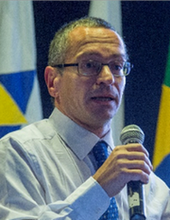
is Professor of Experimental Geomechanics at the University of Strathclyde in Glasgow, Scotland. His current research interests include the direct measurement of water tension in soils and plants, micromechanical behaviour of saturated and unsaturated clays, soil-plant-atmosphere interaction, and stability of natural and engineered slopes subjected to rainwater and floodwater infiltration. He has led major European consortium research projects including the Marie Curie European Training Network 'TERRE’ (Training Engineers and Researchers to Rethink geotechnical Engineering for a low carbon future, 2015-2019). He is co-editor of the books ‘Advanced Experimental Unsaturated Soil Mechanics’ (2005) and ‘Laboratory and Field Testing of Unsaturated Soils’ (2009). He has been keynote/theme lecturer at numerous International Conferences (the 8th International Conference on Unsaturated Soils in 2023 and the ICE Géotechnique Lecture in October 2023 the most recent ones).
|
Undergraduate teaching of Unsaturated Soil Mechanics: building on fundamental physical mechanisms to pave the way for geotechnical analyses (accompanying paper by Alessia Amabile & Alessandro Tarantino) Unsaturated soil mechanics is typically not included in traditional geotechnical engineering curricula at undergraduate level and the design and development of specific modules is usually left to the initiative of individual academics, very often already involved in unsaturated soil mechanics’ research. Due to the lack of advanced testing equipment for unsaturated soils, even when principles of unsaturated soil mechanics are added to the curriculum, they typically lack the laboratory component usually included in traditional geotechnical engineering courses. The lecture presents an innovative approach to teach unsaturated soil mechanics starting from elementary physical mechanisms. One of the distinctive features of this approach is using real-time, small-scale experiments to provide a visual demonstration of key micromechanisms of unsaturated soil mechanics, such as surface tension and capillary forces. This offers the opportunity to enhance students’ engagement and at the same time help them develop a deeper understanding of the fundamentals of unsaturated soil mechanics by presenting them in a non-axiomatic fashion. The proposed approach also focuses on providing numerical tools that enable students to carry out simple, introductory analyses of unsaturated geostructures. In this approach, content is introduced by building upon concepts and methodologies that are typically familiar to undergraduate students, making it accessible and easy to implement across different universities.
|
Nicolas Utter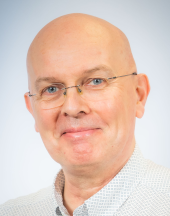
President of the board of the École Nationale Supérieure de Géologie (Higher National School of Geology) in Nancy (France) since 2024, Nicolas Utter has devoted his entire career to the Soletanche Bachy group, where he is currently director of technical studies. President emeritus of the French Committee for Soil Mechanics and Geotechnical Engineering, publishing editor of “Revue française de Géotechnique”, he is involved in improving knowledge and disseminating it, teaching, and standardization. He led the organization of the scientific seminar "Coulomb 2023: A Geotechnical Tribute" to mark the 250th anniversary of the publication of the founding memoir of Charles-Augustin Coulomb. Nicolas Utter teaches soil mechanics and geotechnics at the Higher School of Public Works (Cachan, France) since 15 years, and has been involved in higher education in geotechnics for almost twenty years, both in initial training and in continuing education. Member of the French mirror group of EC7, he also chairs the technical commission of the SOFFONS (French union of deep foundations companies). |
What role should software play in geotechnical education? Numerical modeling software available today offer a host of possibilities in terms of both data processing and digital and graphic output. Today's generations of students, immersed in a digital environment since childhood or adolescence, are naturally fond of them. It is tempting, particularly for young geotechnical engineers, to expect a great deal from these tools, even in some cases a complete understanding of a phenomenon they have encountered on a site. Unfortunately, experience shows that this is not the case for junior engineers. It is often deplorable to see an engineer building a sophisticated numerical model straight away, forgetting to think things through beforehand, even though this is essential if the problem is to be solved properly. In light of dual experience as a practitioner in a design office and as a teacher of soil mechanics and geotechnics, we will be looking at how to use digital tools in the context of learning and professional practice. We will address the question of the right place they should occupy in the geotechnical engineer's training curriculum. We will describe the good ‘reflexes’ that every practitioner should have. This reflection will be extended to the notions of orders of magnitude and the art of engineering, without which the engineer is no more than a calculator that could easily be replaced by an operator simply entering data. |
